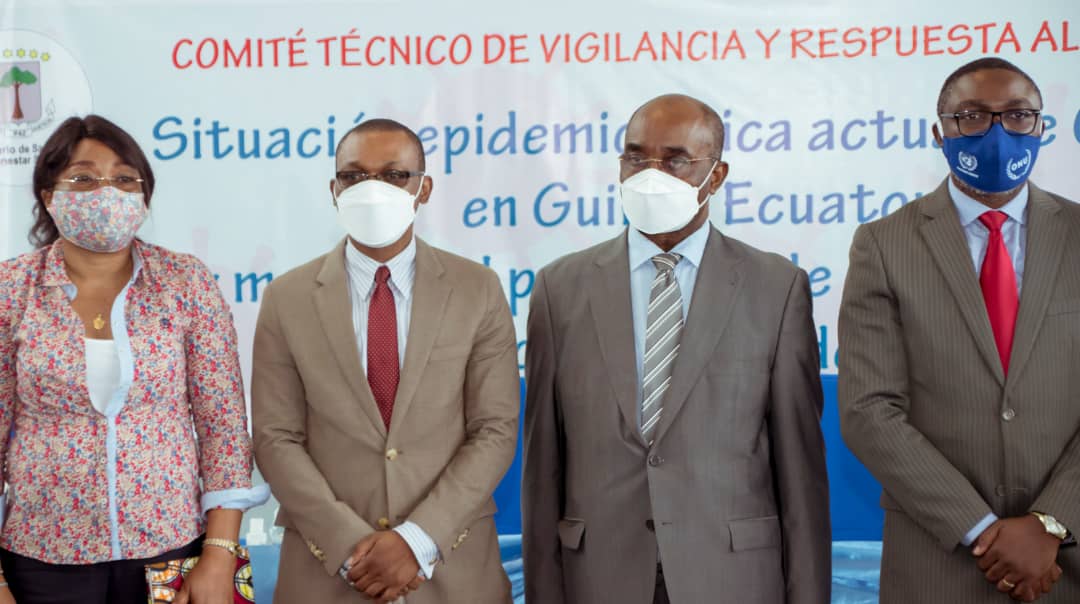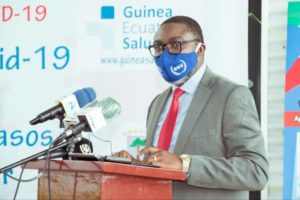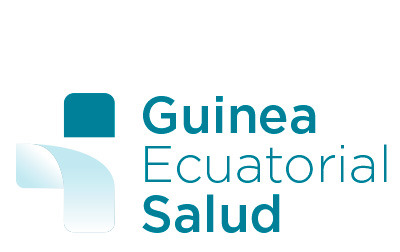
03 Sep The National Technical Committee for Surveillance and Response to COVID-19 reports on the current epidemiological situation in Equatorial Guinea
The Minister of Health and Social Welfare, Diosdado Vicente Nsue Milang, highlighted the low contagion curve due to early warning in the country
The Deputy Minister of Health and Social Welfare, Mitoha Ondo’o Ayekaba, pointed out that the fatality rate is among the best in the world and well below the African average

The National Technical Committee for Surveillance and Response to COVID-19 in Equatorial Guinea, under the direction of the Ministry of Health and Social Welfare (MINSABS) and with the support of the World Health Organization (WHO), organized last Wednesday 2 September 2020 a press conference on the epidemiological situation of COVID-19 in our country.
The Minister of Health and Social Welfare, Diosdado Vicente Nsue Milang, reviewed the actions of the Equatorial Guinean Government and the National Technical Committee in the management of the pandemic, highlighting the low contagion curve due to early warning throughout the country, the composition of the Committee chaired by the Vice President of the Republic, in charge of National Defense and State Security, Teodoro Nguema Obiang Mangue, and monitoring with an adequate epidemiological surveillance system through mass testing and contact tracing.
The Minister of Health and Social Welfare also wanted to point out the adequate logistics management policy by the National Technical Committee, achieving an adequate device for the acquisition of biomedical equipment, reagents, protection materials and other consumables and guaranteeing the vitality of services and capacity response from health institutions.
The Deputy Minister of Health and Social Welfare, Mitoha Ondo’o Ayekaba, highlighted – based on the latest report on the epidemiological situation of COVID-19 in Equatorial Guinea dated August 31, 2020 – the progressive decrease in the transmission curve of the disease, “we already have practically empty hospitals”, and pointed out that the fatality rate in the country is among the best in the world and well below the African average.

“I would also like to underline the great improvement in the positivity rate – a person’s risk of exposure to COVID-19 – which is less than 2.5, for the last seven days. This represents a decrease of more than 50%, confirming the effectiveness of the surveillance strategy implemented in Equatorial Guinea, ”explained the Deputy Minister of Health and Social Welfare.
Alain Poy, Incident Manager for COVID-19 of the WHO in Equatorial Guinea, analyzed in detail the latest report on the epidemiological situation of the COVID-19 pandemic in the country, highlighting the significant decrease in the figures. As of August 31, 53,443 PCR tests have been performed. Alain Poy reviewed the data by provinces and districts, making it clear that the highest number of cases occurred in the insular area and, specifically, in Bioko Norte with 3,902 out of a total of 4,965 confirmed. The positivity rate has been 2.44 in the last 7 days.
Of the total confirmed cases, the Incident Manager for COVID-19 also highlighted that of the 4,965 confirmed cases, 4,656 were placed in isolation, 4,390 recovered and 83 died. Currently, isolated active cases stand at 316.

Doctor Gilberto Manuel Peña, moderator of the case management section of the National Technical Committee for Surveillance and Response to COVID-19, presented the round table with doctors and specialists from different national health centers on improving the management protocol for cases with the incorporation of Remdesivir. As declared by Diosdado Vicente Nsue Milang, Minister of Health and Social Welfare, “our country has been the first in Africa, and one of the few in the world, to acquire the drug Remdesivir, which to this day is the most promising antiviral in the treatment of COVID-19. According to our experiences of use, the impact has been positive in the reduction of the fatality rate and, therefore, in the protection of Equatorial Guinean families ”.
Of the nine patients who received the complete treatment, seven (77.8%) evolved satisfactorily, managing to survive the disease and two died -the deceased had a previously poor state of health with several associated comorbidities- explained the Minister of Health and Welfare Social.

